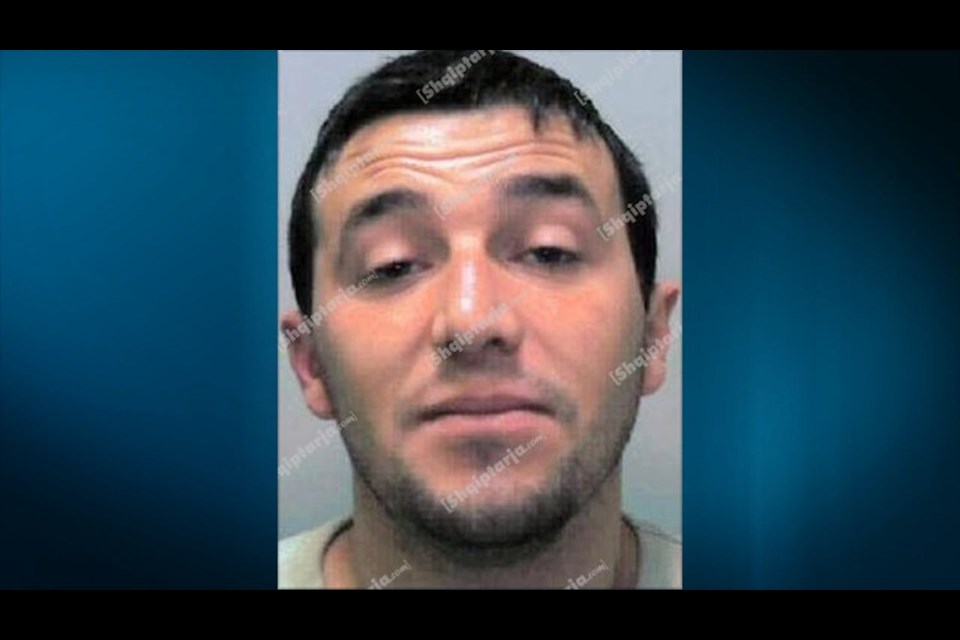Over the past week – and indeed the last seven years – the RCMP has been asked many questions surrounding the fatal accident that claimed the life of Richmond woman Christy Mahy.
Until Monday, when the man who drove dangerously and caused her death, Erjon Kashari, was sentenced to time already served in his native Albania and in Canada, the investigation had either been ongoing or the case was before the courts, limiting the RCMP’s ability to respond to in any great detail.
In particular, Mahy’s family and friends wanted to know why refugee claimant Kashari was allowed to leave Canada and head back to Albania a few months after the July 2014 accident, which he admitted causing at the scene and for which there were several witnesses. (In court, Kashari’s lawyer claimed the CBSA called the RCMP to ask if there was any reason Kashari should not be allowed to leave the country. According to the lawyer, that call was never returned)
And they wanted to know why it took the RCMP more than two years to finalize its investigation and why it took the BC Prosecution Service another two years to lay charges against Kashari, in his absence.
Finally, they have questioned how Kashari – who had been deported from the UK with a serious criminal record a year before entering Canada as a refugee in 2010 – was allowed to roam free in the country while his refugee claim was apparently being processed.
The first and last of those questions, brings in the Canada Border Services Agency (CBSA) which, when questioned by the Richmond News, stats that it is basically at the behest of the Immigration and Refugee Board (IRB) when dealing with refugee claimants
A summary of the responses from Richmond RCMP and the CBSA to the News’ questions surrounding the handling of Kashari’s case are below, in Italics.
The News has also reached out to the IRB for an explanation on its role.
Richmond RCMP:
At the time of (Kashari’s) departure, investigators had completed their interaction with him. However, at that time the investigation was not yet complete, and therefore, not yet ready for submission to the BC Prosecution Service for charge assessment.
As a result, there was no legal option available at that point which would have prevented Mr. Kashari from leaving the country at that time. Any perceived delay in consultation with other agencies was inconsequential to his departure.
Investigators therefore continued with the complex investigation knowing they would need to invest significant time and effort into Mr. Kashari’s repatriation to Canada later, should charges be approved.
The BC Prosecution Service approved criminal charges in June of 2018, at which time the court issued an arrest warrant for Mr. Kashari.
Investigators then began working on the lengthy process to have him extradited from Albania back to Canada to face charges.
Richmond RCMP acknowledges the tragic circumstances surrounding Ms. Mahy’s death, and our heartfelt sympathies continue to go out to her family and friends.
Asked by the News to further explain the more than two years it took to file its report on the accident, the RCMP spokesperson said it was a “very complex investigation that took time to complete fully, and it ended with a successful prosecution.”
Asked about Kashari’s being allowed to leave Canada four months after the accident, the spokesperson added that, “At the time of his departure from Canada, the investigators had completed their interaction with Mr. Kashari, but the investigation was not yet complete.
“At the time of his leaving Canada, investigators were not yet ready to make a submission to the BC Prosecution Service to assess whether charges may be appropriate.”
CBSA:
Q: Why was Kashari allowed to leave Canada?
A: The CBSA is aware of Mr. Erjon Kashari’s case. However, as a Canadian Federal Institution, the CBSA is bound by the Privacy Act in regards to personal information about a specific person or file. As such, we are not able to provide any further information or details about this individual.
Q: Why did the CBSA not ask why Kashari was withdrawing his (refugee) claim? (Which triggered an automatic deportation order)
A: It’s important to note that when an asylum claimant withdraws their refugee claim they do so with the Immigration and Refugee Board (IRB), not with the CBSA. Legislation does not require the IRB to notify the CBSA that a claim has been withdrawn. However, as a general practise, the Refugee Protection Division sends the CBSA a notification confirming the withdrawal.
Q: Would the CBSA like to comment on the apparent breakdown in communication with the RCMP with regard to this case? (When Kashari left Canada four months after the accident)
A: A foreign national found inadmissible to Canada who is the subject of an enforceable removal order must be removed as soon as possible by law. There are provisions that prevent us from removing persons subject to outstanding charges, however if there are no such charges, and the removal order is enforceable, the CBSA is required to act on the order as expeditiously as possible. All persons who are the subject of a removal order are entitled to due process and other legal remedies available to them.
The News will publish the response from the IRB as soon as it receives one.


.jpg;w=120;h=80;mode=crop)

